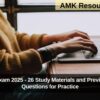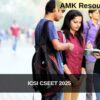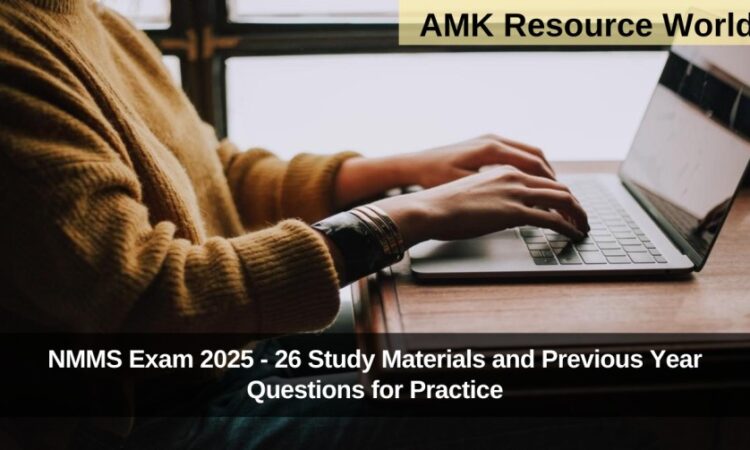Exams can be a challenging time, often bringing stress and anxiety. However, with the right strategies, you can stay calm and perform to the best of your abilities. Here are some effective tips to help you remain stress-free during exams.
RESPIRE
Practicing mindfulness techniques such as deep breathing can significantly reduce stress. Setting aside a few minutes each day for focused breathing exercises helps calm your body’s stress response, bringing your attention to the present moment. This simple practice enables you to manage anxiety, think rationally, and enhance your revision efficiency.
EAT WELL, SLEEP WELL, AND EXERCISE WELL
Neglecting your health by pulling all-nighters, consuming junk food, and avoiding exercise can increase symptoms of anxiety. To perform at your best, prioritize:
- Sleep: Get at least 8-9 hours of restful sleep each night.
- Diet: Include slow-release carbohydrates, reduce caffeine intake, stay hydrated, and consume a balanced diet.
- Exercise: Engage in at least 30 minutes of physical activity daily to release endorphins and boost concentration.
AIM FOR FEASIBLE OUTCOMES
Avoid overburdening yourself with unrealistic expectations. Whether you have weeks or only a few days left before your exam, create a study plan that is achievable. Accept your current situation and focus on making the most of the time available without overwhelming yourself.
PARTNER UP FOR REVISION, DON’T TACKLE IT ALONE
Studying with peers can enhance understanding and retention of information. Research has shown that revising with friends helps individuals absorb information better and stay motivated. Additionally, having a study group fosters emotional support, boosts confidence, and makes the learning process more enjoyable.
KEEP YOUR COMPOSURE
It’s natural to feel anxious before, during, or after an exam. However, excessive panic can cloud your thinking. If you start feeling overwhelmed:
- Take six deep breaths.
- Drink some water.
- Break the problem into manageable chunks.
- Remind yourself that every challenge has a solution.
BELIEVE IN YOURSELF
Self-doubt can be one of the biggest hurdles during exams. Remind yourself of past achievements and the progress you’ve made. When a negative thought creeps in, replace it with a positive one. Instead of thinking, “I am going to fail,” tell yourself, “I have worked hard, and I will do my best.” Your confidence is a crucial element in success.
CONVERSE WITH SOMEONE
If you’re feeling overwhelmed, don’t hesitate to talk to a friend, family member, or teacher. Expressing your concerns can help you feel lighter and more supported. Seeking professional guidance is also an option if stress levels become too high.
DON’T COMPARE YOURSELF TO OTHERS
Avoid measuring your progress against your peers. Each student has a unique way of preparing for exams. Comparing yourself to others may increase stress and self-doubt. Instead, focus on your strengths, study at your own pace, and trust your preparation strategy.
DISTRACT YOURSELF WITH HEALTHY ACTIVITIES
Sometimes, taking short breaks can be more beneficial than continuous studying. Engage in activities that help reduce stress, such as:
- Playing with a stress ball or fidget toy.
- Listening to music.
- Going for a walk.
- Reading something non-academic for a while.
These distractions refresh your mind, helping you return to your studies with greater focus and motivation.
STAY POSITIVE
A positive mindset plays a key role in handling exam stress. Combat negative thoughts like “I can’t do this” with self-affirming statements such as “I’ve prepared well and I will give my best effort.” Write down motivational quotes or self-cheerleading messages and place them in your study area as a constant reminder.
BE ORGANIZED
Organization is essential for reducing stress and optimizing study efficiency. To stay organized:
- Create a study schedule that includes designated time for breaks, sleep, and relaxation.
- Maintain a daily to-do list with important tasks to be completed.
- Keep your study materials, notes, and resources well-organized to avoid last-minute chaos.
PRACTICE PREVIOUS EXAM PAPERS
Practicing past exam papers helps you familiarize yourself with the format, manage time effectively, and identify important topics. Simulating exam conditions while solving these papers will boost your confidence and help you perform better.
TAKE REGULAR BREAKS
Studying for long hours without breaks can lead to burnout. The Pomodoro Technique, which involves 25-minute study sessions followed by a 5-minute break, can improve productivity. Short breaks help maintain focus and prevent mental fatigue.
AVOID LAST-MINUTE CRAMMING
Cramming at the last moment often leads to increased anxiety and reduced retention of information. Instead, plan your revision well in advance, using active recall techniques such as flashcards, summaries, and self-quizzing.
STAY AWAY FROM SOCIAL MEDIA
Social media can be a major distraction during exams. Limit screen time by using apps that block notifications or restrict access to distracting websites. Focus on your studies and reward yourself with screen time only after completing a study session.
MAINTAIN A HEALTHY PERSPECTIVE
Remember that exams are just one part of your academic journey. While they are important, they do not define your worth or future. Emphasize learning and growth rather than focusing solely on grades. A balanced perspective helps reduce stress and fosters a healthier approach to education.
FINAL THOUGHTS
Exams can be stressful, but with the right approach, you can navigate them with confidence and ease. Implementing these tips—such as mindful breathing, setting realistic goals, staying organized, and maintaining a positive mindset—will help you stay stress-free and perform at your best. Remember to believe in yourself and trust your preparation. Good luck!











































